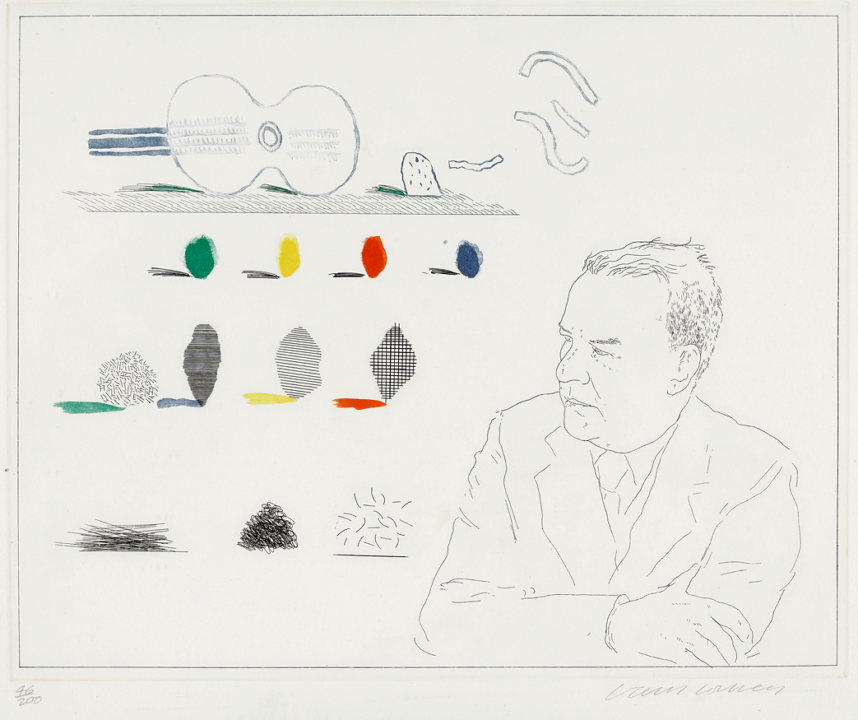A distinctive feature of our printed magazine is our letters department. Each issue, we offer reader sentiment—discourse on stories, reprimands for editorial miscues (!), responses to previous letters. It’s an opportunity—a commitment, really—to ensure that our relationship is symbiotic.
When we hit pause on the print edition of the magazine, it seemed like our robust compendium of reader feedback would be a casualty of the moment; but then I realized it didn’t have to be.
Let’s keep the discourse going. Log your comments here on the site at the end of stories. Email me. Write. We’ll keep publishing what you have to say, here in pixels and then again, when the time is right, in print.
Bravo
I was so touched to read the tribute to Pam Fogg in the winter issue of the magazine. (“A Brilliant Fogg.”) I had the pleasure of working in the alumni office in the early 2000s when the alumni offices were in Meeker House (the old Sig Ep building), and the magazine offices were upstairs on the third floor. I loved wandering up there to see my friends and to see how they put together a quarterly magazine that got rave reviews from the Midd alums and earned many industry awards.
Pam—as the title to Matt Jennings’s winter column states—is, indeed, brilliant. She designed a magazine that was gorgeous to look at, to feel, to rifle through, and she brought the Middlebury campus and alumni stories to life! She will be missed, but if this winter’s magazine is any indication, her legacy will live on! Bravo to Pam; congratulations on your retirement. I know you are creating beautiful art no matter where you are or what you are doing. Thank you to Matt for recognizing this amazing woman—her talent and her mark on the Midd community.
—Anya Puri Brunnick ’88, Newburyport, Massachusetts
Another Interview Tale
Calvin Johnson’s letter in the winter 2020 issue describes his encounter with Tim Carey of the Admissions Office who, after a two-and-a-half-hour interview, asked him, “Do you want to come here?” When Johnson replied in the affirmative, Carey handed him an application and told him to fill it out and bring it back the next day. Evidently, that was an indication that Johnson had been admitted.
This incident brought mind my experience with Fred Neuberger in the summer of 1962. I had applied to Middlebury in the fall of 1961 from my home in Boulder, Colorado, and had been waitlisted. Since I was coming to visit my grandmother in New Hampshire that summer, I wrote Neuberger and asked him to delay any decision until I had an opportunity to visit the College and interview in person. So, in late June or early July, I arrived on campus and sat with Fred for almost two hours, during which I convinced myself that I had talked my way off the waiting list and into a slot with the Class of 1966. At the end of the interview, I asked Fred what my chances looked like, fully expecting him to admit me on the spot. Instead, he replied, “You will be hearing from us,” or something equally noncommittal. But he must have dictated my acceptance letter shortly after I departed his office, as it arrived at my grandmother’s home in New Hampshire just a day and a half later!
—Peter Allen ’66, Providence, Rhode Island
Indeed, Not a Lot of Sky Runners Out There
I commend you on the superb, inspiring article about Hillary Gerardi ’09 (“The Sky Runner,” winter 2020). Your choice of subject was surprisingly unusual and highly creative. Hillary’s accomplishments and story are vastly different from more commonly recognized alumni achievements (high earnings or attaining a position of distinction in business or government).
I highly recommend that you submit the story on Hillary for consideration to the various competitive publication competitions that have previously recognized Middlebury Magazine pieces.
—Dan Frederick ’62, Gardendale, Alabama
Praising Presidents
I thoroughly enjoyed reading “The State of Their Union,” by James Lynch ’16 in the winter issue.
I wasn’t as young as Will Bellaimey when I got hooked on presidents and presidential trivia; I was 12 years old. One reason for my interest is that I found out I was born on George Washington’s birthday. The other reason was that my paternal grandfather was a Civil War veteran. At age 12 I was given a board game called Meet the Presidents, which included trivia questions and coins of each chief executive from Washington to Eisenhower.
My interest in our presidents has not faded over the years. After I retired from teaching history and Spanish, I still teach a course on the lives of the presidents part time to senior citizens at a community center in Lakewood, California. I agree with Bellaimey that you need to discuss the presidents in chronological order to make the presentations flow naturally. I will say, though, that I noticed an error on page 51. It was not Chester Arthur who could write both Greek and Latin; it was his predecessor, James A. Garfield, who was ambidextrous and wrote the two languages simultaneously.
—Gerald Lunderville, MA Spanish ’69, Long Beach, California
Wrong One
As an alumna from the previous century (1965 to be precise), I always scan the alumni magazine with interest, often impressed with the breadth and depth of the professional interests of my fellow liberal arts graduates. As one who has come in retirement to a great interest in American history, I was particularly intrigued by the article “The State of Their Union” in the winter 2020 issue and looked forward to reading it.
Imagine my surprise to discover an egregious factual error in the attribution of ambidextrous Greek and Latin writing to president Chester Arthur, when that prodigious feat should be most definitely ascribed to his predecessor James Garfield, a president whose promising term was so unfortunately cut short by an assassin’s bullet. Chester Arthur, a far less prepossessing fellow, did grow in the office far beyond those who anticipated that he would be merely a party hack holding down a sinecure as vice president. On the other hand, as far as I know, he was never able to write Greek with one hand while writing Latin with the other.
Thanks for keeping all of us who had the privilege of spending four years within the walls of ivy connected over the years.
—Susan Stitham ’65, Ashland, Oregon
An Opposing Viewpoint

In his essay accompanying one of the magazine’s opening “Scenes” in the winter issue, Aidan Acosta ’20 presents the central figure of his fine photograph, The Girl with the Rainbow Umbrella, as “symbol for . . . equality rising above exclusion.” Equally valid, however, might be the view that the protester in the photo represents the troubling tendency on campuses today to disrupt the free speech of speakers whose opinions we dislike.
If colleges and universities are to fulfill their purpose, surely they must guide students to understand and accept the principle of open discussion even, or especially, when the subject is taboo or “politically incorrect.” Otherwise, it will continue to be fashionable for the miseducated to shout out and shut down anyone with whom they disagree. Instead, students would be well advised to study the issues and positions advocated by controversial speakers in order to challenge them with respectful, reasoned, and cogent argument during the Q&A. That would have a far greater, more productive impact than brandishing placards.
The inability of protesters, both within and beyond Acosta’s photo, to prevent Steve Bannon from speaking at the Oxford Union may signal an auspicious moment—one that contrasts sharply with the appalling lapse of civil engagement three years ago when Charles Murray tried to speak on the Middlebury campus. That Bannon had to circumvent a blockade, arrive in an armored police van, and be escorted into the building by multiple guards indicates, however, that more lessons need to be learned.
—George Viglirolo, MA English ’71, Brookline, Massachusetts
Not a Dean vs. Student Confrontation
I well remember the 1962 Mud Slide event which occurred during a townwide power outage (“Short Story,” winter 2020). Students did discover the fun of sliding down Stewart Hall’s mud hill. Unfortunately, broken glass left by workmen the previous summer while refurbishing the building began to emerge in the mud. The arrival of injured students at the infirmary with
slashed “backsides” prompted Dean Reynolds to call me as Mountain Club president to see if we had a portable generator. Hence the diversion of activities to an impromptu street dance in front of Starr Hall. The music I recall was provided by a group of DKE brothers on a trailer lent by a local farmer. I believe the band leader the following summer drove a war surplus Army DUKW amphibious vehicle to South America.
—Chris White ’63, Bucksport, Maine
More on Words

In the brief “Perspectives” page in the winter 2020 issue announcing the acquisition by the College museum of David Hockney’s print The Poet, Pieter Broucke notes the obvious theme of imagination and its transformative power in the hands of a poet, painter, or musician. However, for an exhibition called Word and Image in Dialogue, I think the “Word” half of that equation deserves a more respectful look.
I do not buy that the poet—depicted by Hockney so brilliantly in Picasso-esque line—merely contemplates “a playful landscape of blobs and shadows of various colors and textures,” any more than I think Hockney forgot how to draw on the left side of the image.
Part of the opening of Wallace Stevens’s “The Man with the Blue Guitar” has lodged in my brain since high school more tenaciously than a baby shark meme: “a shearsman of sorts.”
The man bent over his guitar,
A shearsman of sorts. The day was green.
Well, there’s green beneath the guitar (which shows more blue in other reproductions), and, as Amy Hungerford nicely notes, “sheer abstraction floats off.” But Stevens used “shearsman.” Jogged by the three little piles of lines in the bottom strophe of Hockney’s image, it occurred to me that a barber is a shearsman of sorts. Suddenly those piles of lines were hair clippings! Straight, curly, pubic . . .
Swept off the floor and regimented by the painter, the lines are more coherent in the middle strophe, and accessorized by color.
In the top strophe, the lines become shadows of the colors, perhaps implying —as Amy Hungerford suggests—“the painter presses his advantage over the poet.”
I know. There’s probably an alternate interpretation online warning of the culpability of abstract art in the coronavirus crisis—just look at those ominous squiggles!!! But gosh, my Middlebury education brings me joy.
Interpretation. Thinking. Dreaming. Searching for coherence in the vapors of art, and speaking up when called for. This pondering has been a wonderful distraction from the virus today. Thank you, Middlebury Magazine.
—Meredith Parsons McComb ’75, Traverse City, Michigan
Some Questions
I appreciate the sentiments expressed in Jhon Arbalaez-Novak’s essay “Perhaps None” (Winter 2020), as I have also chosen not to have children. But something started to bother me while I read through the author’s self-reflections and explanations. I finally realized what was troubling me—why does the author feel the need to justify not having children? Does anyone ever ask parents to justify having children? All of us make different choices in life, based on what suits us best. So why do we still have this underlying assumption about parenthood and family that exerts such pressure, to the extent that the author feels the need to write an entire article in an alumni magazine about the decision to not have children?
I also question his use of the word “childless,” as the suffix “-less” typically reflects not just a lack but also a yearning or desire for what is lacking (e.g., hopeless, endless). Most of these adjectives carry negative connotations. However, if I choose not to have children, I am not childless. If anything, perhaps we should substitute the term “childfree” as a more positive reflection of my (our) parental status.
—Jodi Samuels, MA French ’98, Sacramento California
A Hero
Jhon-Arbalaez-Novak’s Road Taken essay (“Perhaps None”) is both an example of personal courage and global awareness, and, even better, an example of “think globally, act locally.” I have long proselytized that the root cause of nearly all our environmental problems (which Middlebury itself takes special delight in wringing its hands over) lies in the unceasing desire— or, more appropriately, urge—to procreate, regardless of certain inconvenient truths (such as that we have already squeezed eight billion or so homo sapiens onto this finite sphere with finite resources).
I often wonder how many couples of childbearing age or, more pointedly, faculty of the Environmental Studies program at Middlebury, consider these compelling questions before pulling the “let’s have a [another] child” ripcord? I daresay: few, or none.
If there is an environmental hero to be found within the Middlebury community, it is people like Jhon-Arbalaez-Novak: They “get” it.
—James Close ’74, Mechanicville, New York
A Handful of Observations
The winter 2020 issue of the magazine had several things that really intrigued me, so I had to write.
As a School of Spanish master’s graduate from 1985, I wholeheartedly agree with the letter writer (and also School of Spanish MA grad, he from 2005), Matthew Feinberg, who commented on the lack of accents and other marks that are needed with foreign place or people names printed in your magazine. We worked hard at Midd for our degrees, and we expect to see this continued in the magazine as much as possible. I realize it takes up space, or a full line over the word, which is why most newspapers have dropped the accents. But for us, it would make us proud that our alma mater cared.
And congrats (!) on starting an Abenaki session at the Language Schools this summer! What an intriguing idea to go back to the roots of the peoples who really were here first. Back in 1983–84, I recall when the Arabic School started at Midd, and I was amazed anyone was taking that language, and couldn’t understand why. Was I wrong! I know how important it is now and certainly the deep roots that language has in the world’s history. While Abenaki is endangered, it is part of what makes the eastern half of the U.S. the great place it is. The culture and people are surely pleased you are taking this step. Well done and I hope it is super successful!
Finally, I agree with the writer who asked why you use plastic instead of recycled paper to mail out the fall issue with the calendar. It would make lots of sense to use paper or some other 100 percent recycled plastic, which is probably not reasonable in price, but would send a message to all alums and parents. Keep trying, there has to be a better solution out there.
Keep up good work with this magazine. I look forward to reading it every time it arrives!
PS: I particularly enjoy the Archive section of the magazine. Please share more of those tidbits of historical intrigue. They are fascinating.)
—Terri Knoblauch Wilson, MA Spanish ’85, Avon, Connecticut
Remember a Fine Dog
Nice article about dogs on campus in the winter issue of the magazine (“The Dogs of Middlebury”). Back in my day, one dog ruled the campus: Psal (pronounced pee-saul), a golden retriever belonging to English professor Sandy Martin. Psal would befriend a student and walk to classes with him. I felt honored when he chose me to spend the nights with in my Gifford room, finding it and scratching on my door, accompanying me to classes, and going hiking on weekends. I rewarded him with trips to Lake Champlain. After a while, he would move on to another student and that person would have his undivided affection for a time. Well behaved, Psal was never on leash and kept quiet in classrooms.
Maybe the class of ’65 could remember Psal with a plaque on the terrace of the student union. Just a thought.
—Robert Farnsworth ’65, Sacramento, California
Almost Famous?
Josie the retired racing greyhound may be a less famous campus dog (“Dogs of Middlebury,” winter 2020) because I only got her last May, but she’s a mascot of the Economics Department! Would love to see her in the magazine some time.
—Amanda Gregg, Middlebury, Vermont
Editor’s Note: I’m sure there may be a round two sometime down the road, and we’d love to include Josie!
With Delight
I don’t know how I got on the mailing list for the Middlebury Magazine, but I must say, it was a delightful reading experience, and I want to thank whoever is responsible.
I visited your campus when I spent a summer at Bread Loaf, a summer that was the most rewarding one of my life. It was a time shared in a lovely environment where I was surrounded by intelligence, kindness, intellectual challenges, and new friends. The memory remains vivid in my mind. When I get their mailings, I often wish that I could attend, but the cost and my age make that impossible.
This 87-year-old lady from South Dakota who spent her entire life teaching all levels of education—first grade through college seniors—just wanted you to know that she appreciated the style and the content of the magazine. Thank you.
—Bette J. Gerberding, Brookings, South Dakota

Leave a Reply